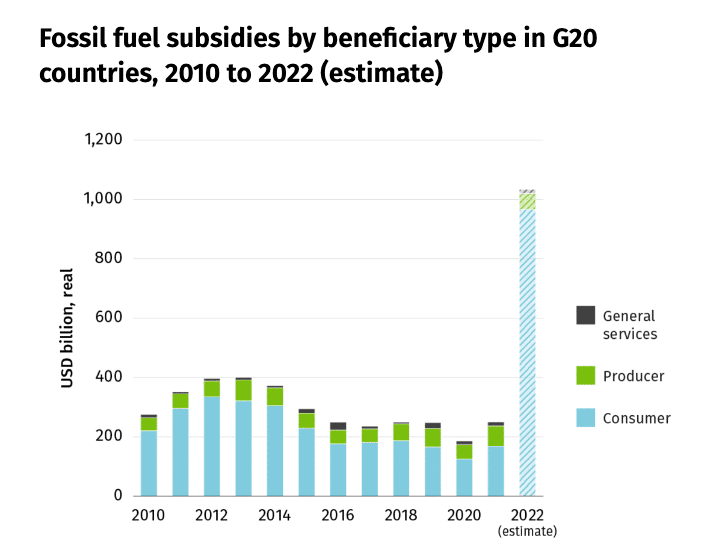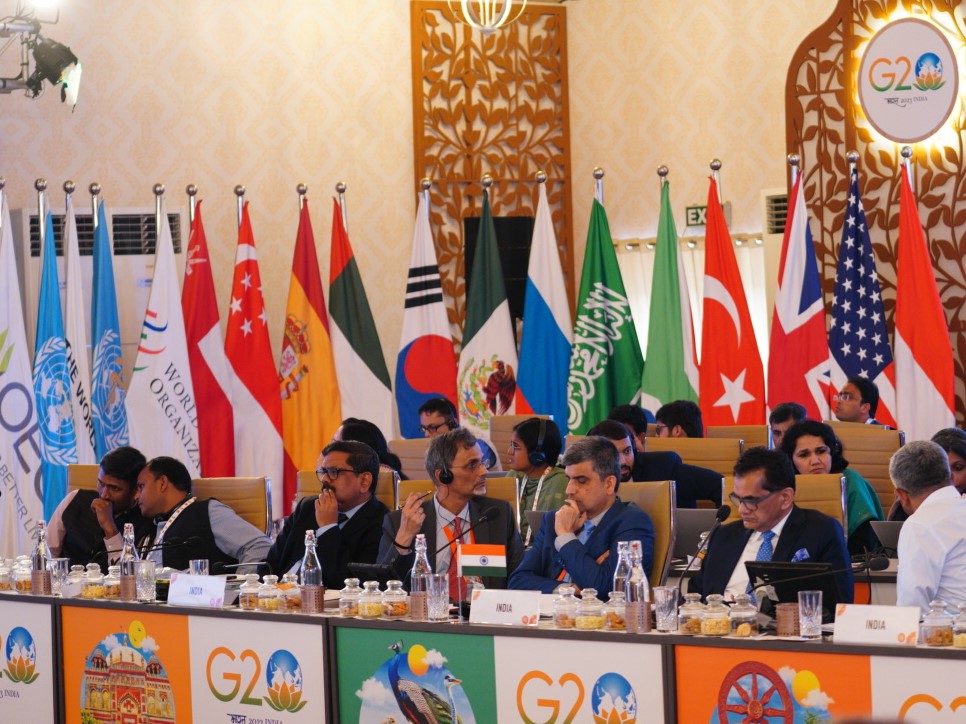Despite boosting green energy goals – with member states pledging to “pursue and encourage efforts to triple renewable energy capacity globally” by 2030 – G20 leaders failed yet again to set a timeline to end the use of planet-warming oil and gas.
—
In what many advocacy groups described as yet another missed opportunity, G20 leaders gathered in New Delhi over the weekend failed to address some of the most critical aspects of slowing down climate change, including setting a timeline to phase out planet-warming fossil fuels.
Leaders of the world’s most powerful economies, with the exception of Russian President Vladimir Putin and Chinese leader Xi Jinping, gathered in New Delhi, India, for the highly anticipated G20 meeting. Together, G20 countries account for about 80% of global greenhouse gas emissions.
On Saturday, the attendees adopted a joint declaration covering issues ranging from climate change and sustainable development to gender equality and countering terrorism. However, the final text only said member nations “will increase [their] efforts to… phase-out and rationalise, over the medium term, inefficient fossil fuel subsidies,” falling short of addressing the critical phase-out of fossil fuels, which the United Nations deemed as “indispensable” to achieve net zero emissions in a report published ahead of the summit.
According to the UN’s first stocktake of global efforts on climate released on Friday, countries are largely failing to meet their commitments. The report also warns that the window to set ambitious climate policies and implement existing commitments in order to limit global warming to 1.5C above pre-industrial levels is “narrowing rapidly.”
Despite progress in renewable energy deployment and carbon capture technologies, the UN argues that current global finance for climate action is still less than a fifth of the estimated US$4 trillion annual investment in clean energy technology needed to fulfil the Paris Agreement. Previous analyses also showed that investments in fossil fuels are on the rise, with G20 countries alone spending a record $1.4 trillion in fossil fuel subsidies in 2022, more than double the pre-pandemic and pre-energy crisis levels of 2019.

Fossil Fuel Subsidy Tracker, 2010 to 2021. 2022 consumption subsidy estimate. Image: Institute for Sustainable Development.
Sultan al-Jaber, the United Arab Emirates’ (UAE) president-designate of COP28, said the UN stocktake “provides clear direction” for the action needed “in this critical decade,” adding that the countries around the world “must urgently disrupt business as usual and unite like never before to move from ambition to action and from rhetoric to real results.” The UAE, an oil-rich country, has yet to submit a net-zero target to the UN despite a stated 2050 “strategic initiative” by its leadership. Moreover, a report published in July suggested that the UAE’s strategy to curb emissions is insufficient and CO2 emissions are expected to increase through to 2030 as the country plans to further increase fossil fuel production and consumption.
Despite widespread dissatisfaction with G20’s commitments to fossil fuels, member states were applauded for backing a target of tripling renewable energy globally by 2030. Yet, as Madhura Joshi, Senior Associate at climate think tank E3G, argues: “Increasing renewables needs to go hand in hand with phasing out fossil fuels, which is completely missing. We need stronger, bolder action from leaders on both.”
The planet has already warmed by at least 1.1C, and emissions continue to rise, with carbon dioxide (CO2) emissions not expected to peak until 2025. In fact, atmospheric CO2 reached record levels this summer, peaking at 424 parts per million (ppm) in May, more than double what they were before the onset of the Industrial Revolution in the 19th century.
The lack of consensus on phasing out emissions casts a shadow over the upcoming crucial climate conference – COP28 – scheduled to commence in November, taking place in the UAE.
You might also like: Summer 2023 Was the Hottest on Record Globally by a ‘Large Margin’, Scientists Say


















